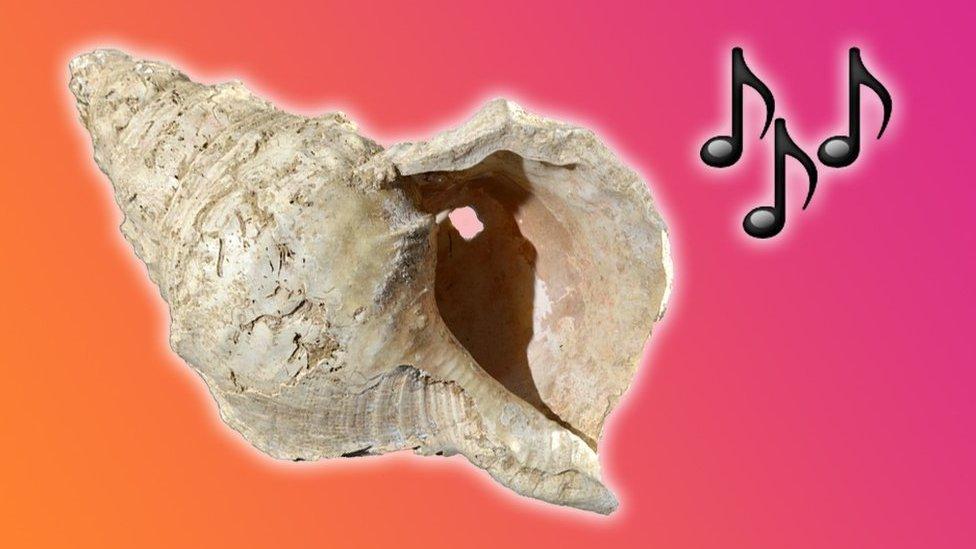Ancient conch shell musical instrument played for first time in 17,000 years!
- Published
- comments

Researchers think the shell was changed by humans to turn it into an instrument
An ancient conch shell has been played for the first time in 17,000 years.
Archaeologists think it is one of the oldest known man-made conch shell horns, and was discovered inside the Marsoulas cave at the bottom of the French Pyrenees in 1931.
Researchers first thought the shell was a ceremonial drinking cup, but after using new high-tech equipment, researcher Carole Fritz and her team were able to discover it's secrets.
The scientists invited a professional French horn player to come in and help them, and by blowing through the mouthpiece, they were able to make three sounds, close to the notes C, C sharp, and D.
A musical history lesson
An artists drawing of how the shell might have been used.
"Around the world, conch shells have served as musical instruments, calling or signalling devices, and sacred or magic objects depending on the cultures." said the study's authors.
"To our knowledge, the Marsoulas shell is unique in the prehistoric context, however, not only in France but at the scale of Palaeolithic Europe and perhaps the world."
The research team discovered that the shell had been modified by ancient humans, to add a mouth piece and add holes, as well as using a red pigment to decorate it, which showed it was an important object.
Archaeologists carried out carbon-dating - a special technique used by scientists to figure out how old things are - on a piece of charcoal and bone found in the same cave as the horn, and found them to be around 18,000 years old.
Based on this, researchers think that this horn is one of the oldest known wind instruments of its type.
The team have now made a 3D model of the conch shell to learn more about how it was used by the Magdalenian people as a musical instrument, without damaging the original shell.
- Published28 December 2020
- Published28 January 2021
- Published6 August 2019
